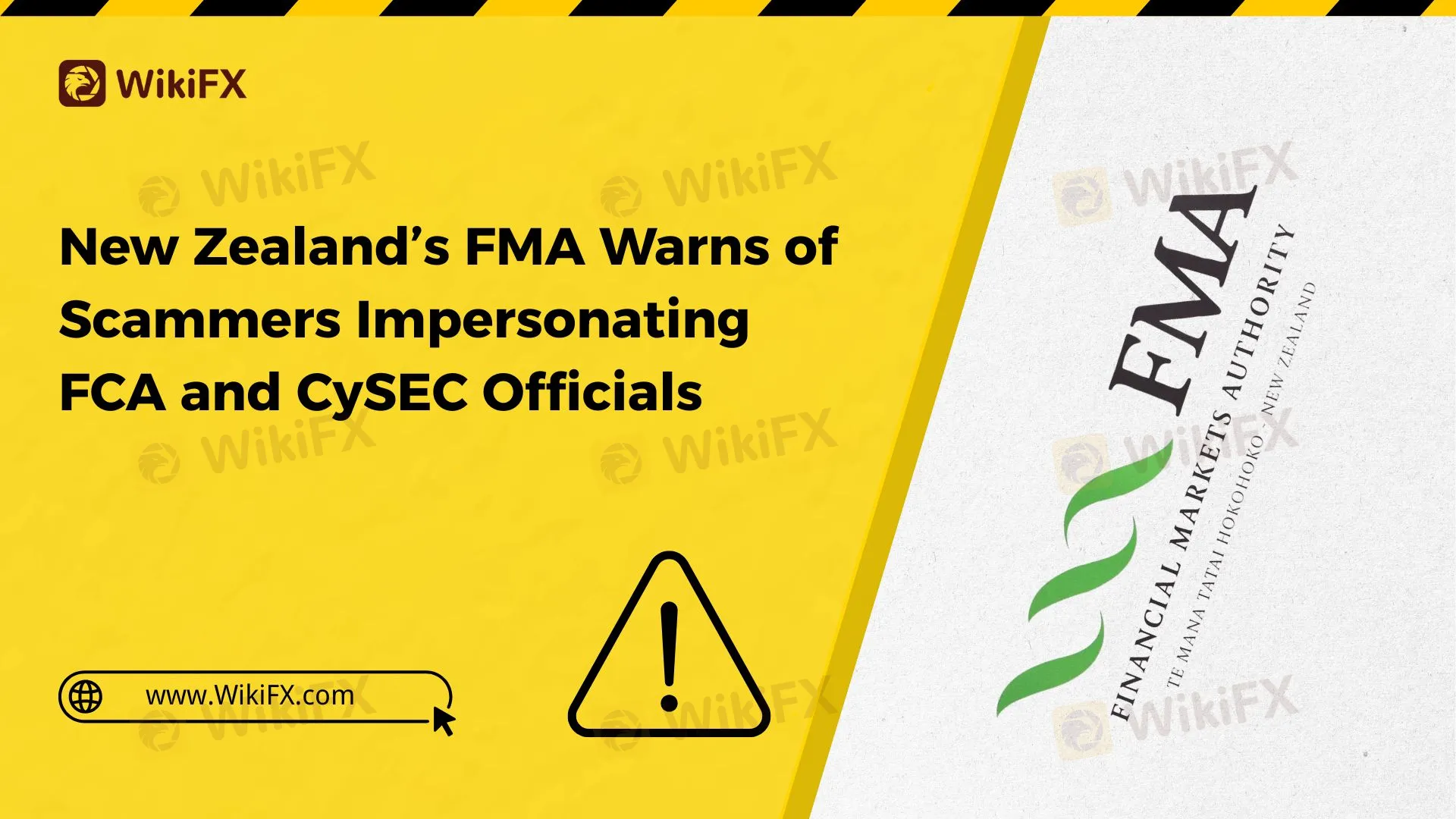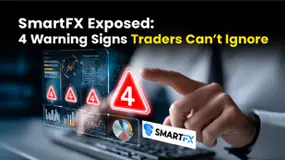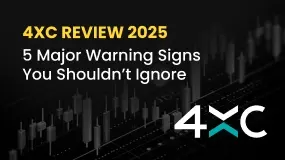简体中文
繁體中文
English
Pусский
日本語
ภาษาไทย
Tiếng Việt
Bahasa Indonesia
Español
हिन्दी
Filippiiniläinen
Français
Deutsch
Português
Türkçe
한국어
العربية
New Zealand’s FMA Warns of Scammers Impersonating FCA and CySEC Officials
Abstract:New Zealand’s FMA warns that scammers are impersonating regulators like the FCA and CySEC to lure investors through fake investment groups on chat apps.

New Zealands Financial Markets Authority (FMA) has raised concerns about a growing wave of investment scams spreading through chat platforms. The regulator revealed that it is receiving a rising number of complaints from individuals who were added to online investment groups after being approached via unsolicited messages.
These scams often begin with messages sent through platforms like WhatsApp, Telegram, Facebook Messenger, and Instagram. Victims are typically invited to join groups that appear to offer investment tips or education, but are, in reality, run by fraudsters. Once inside, theyre presented with attractive—but fake—investment opportunities.
According to the FMA, scammers are now going a step further: impersonating representatives from major financial regulators, including the UKs Financial Conduct Authority (FCA) and the Cyprus Securities and Exchange Commission (CySEC). By misusing the names of respected regulatory agencies, these scammers are attempting to build false credibility and lure more victims.
In some cases, individuals who had already fallen prey to scams were later contacted by fraudsters pretending to be from the FCA or CySEC, offering to “recover lost funds” for a fee. These so-called recovery scams are increasingly common and add a second layer of financial harm.
The FMA stressed: “Any unsolicited contact about investments—especially from someone claiming to represent a regulator—should be treated with extreme caution.” They urge the public not to trust unknown individuals online, no matter how professional their profiles or documentation may appear.
This issue is not limited to New Zealand. Australian regulators have issued similar warnings, noting that investment scams—particularly those involving cryptocurrency or forex—have caused hundreds of millions in losses. Other countries, such as Vietnam and Russia, have even taken steps to restrict access to platforms like Telegram over their failure to curb scam activity.
To protect yourself, always verify a company‘s legitimacy before engaging. Check their regulatory status through official sources—or use tools like WikiFX to confirm a broker’s credentials and avoid falling into the trap.
Disclaimer:
The views in this article only represent the author's personal views, and do not constitute investment advice on this platform. This platform does not guarantee the accuracy, completeness and timeliness of the information in the article, and will not be liable for any loss caused by the use of or reliance on the information in the article.
Read more

SmartFX Exposed: 4 Warning Signs Traders Can’t Ignore
Facing losses due to manipulative forex trading that takes centre stage at SmartFX? Move out of this ship before it sinks and leaves you with virtually no capital on hand. In this article, we will expose SmartFX by showcasing its four red flags that traders like you cannot ignore.

Is India-Based Groww an Investment Scam? 5 Truths to Know
Groww is an India-based broker that is gaining popularity rapidly in the country. You will often see its ads on YouTube and other social media platforms. This broker is promoting itself aggressively. But before you invest with this broker, here are 5 red flags you should know.

Datuk Seri Linked to RM8.4 Million Gold Investment Scam Under Police Probe
Malaysian police are investigating a gold investment scam that has cheated 37 people out of more than RM8.4 million, with a businessman holding the honorific title ‘Datuk Seri’ believed to be the mastermind.

4XC Review 2025: 5 Major Warning Signs You Shouldn’t Ignore
Investment scams are prevalent in the forex market. You need to be Scam alert to protect yourself from these kinds of scams. Otherwise, you could end up penniless, as fraudulent brokers may swindle your money. To stay informed, Read the major warning signs associated with 4XC.
WikiFX Broker
Latest News
Datuk Seri Linked to RM8.4 Million Gold Investment Scam Under Police Probe
The Psychology Behind the Ascending Triangle Pattern in Forex
Charles Schwab Forex Review 2025: What Traders Should Know
The Global Inflation Outlook
What WikiFX Found When It Looked Into XS
ASIC Regulated Forex Brokers: A Comprehensive 2025 Guide
Revealing the Art of Forex Spread Betting
EC Markets Enters Mexico City, Accelerates LATAM Push
Scam Warning from NZ FMA: Beware of Unauthorised Firms
Top CMA-Regulated Forex Brokers in Kenya 2025
Currency Calculator


